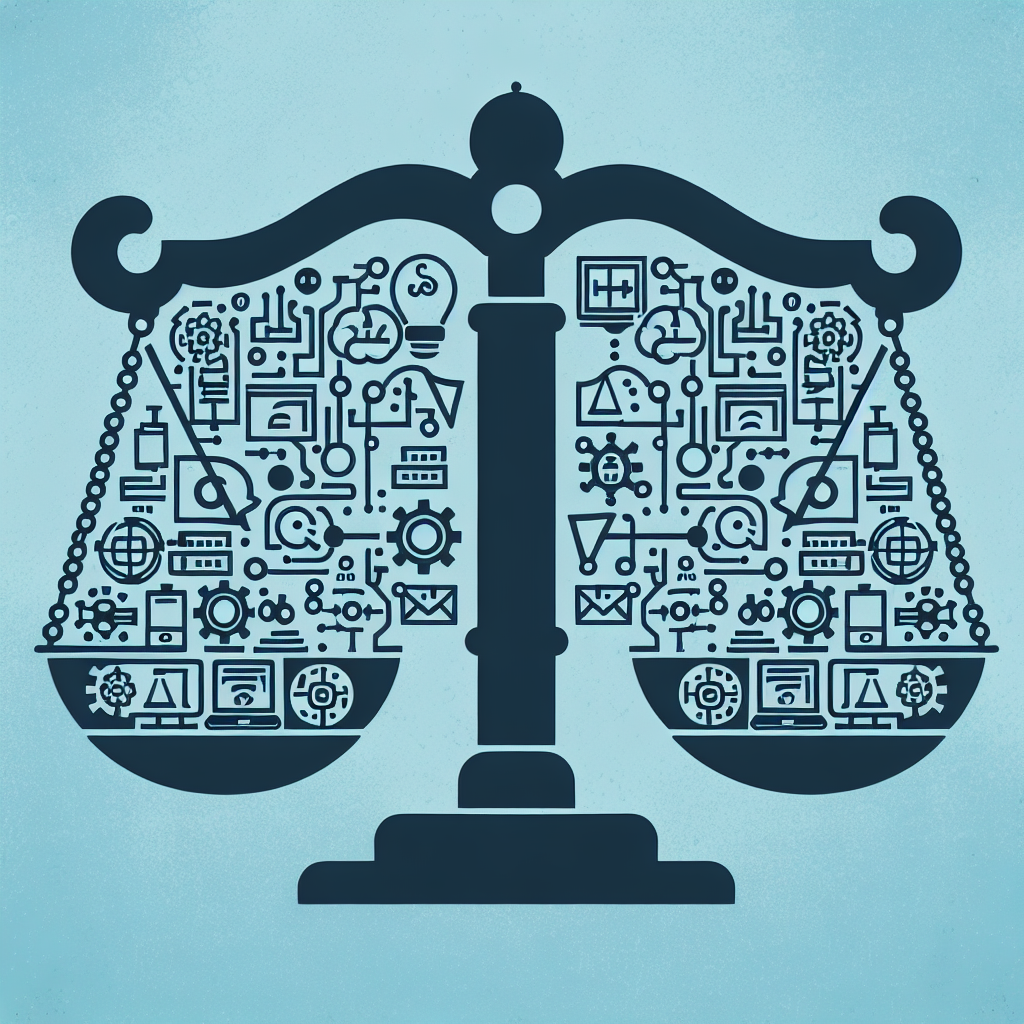Ethical Implications of AI: Addressing the Challenges
Artificial Intelligence (AI) has the potential to revolutionize industries, improve efficiency, and enhance our quality of life. From self-driving cars to virtual assistants, AI is already permeating various aspects of our daily lives. However, as AI technology continues to advance rapidly, ethical concerns have emerged regarding the implications of AI on society, privacy, and human rights. In this article, we will explore the ethical challenges posed by AI and discuss potential solutions to address them.
1. Privacy and Data Security
One of the primary ethical concerns surrounding AI is the issue of privacy and data security. AI systems rely on vast amounts of data to function effectively, and this data often includes sensitive personal information. As AI technology becomes more sophisticated, there is a risk that this data could be misused or exploited, leading to privacy breaches and violations of individual rights.
To address this challenge, it is essential for organizations and policymakers to prioritize data protection and implement robust security measures to safeguard personal information. This includes ensuring that data is collected and used in a transparent and responsible manner, with clear guidelines on how it will be stored, accessed, and shared. Additionally, organizations should prioritize data minimization, only collecting the information necessary for AI systems to operate effectively, and regularly auditing their data practices to identify and address potential security vulnerabilities.
2. Bias and Discrimination
Another significant ethical challenge posed by AI is the issue of bias and discrimination. AI systems are only as good as the data they are trained on, and if this data is biased or incomplete, it can result in discriminatory outcomes. For example, AI algorithms used in hiring processes have been found to exhibit bias against certain demographic groups, leading to inequalities in employment opportunities.
To combat bias and discrimination in AI systems, organizations must take steps to ensure that the data used to train these systems is diverse and representative of the population they serve. This includes implementing mechanisms to detect and mitigate bias in AI algorithms, such as conducting regular audits and sensitivity analyses to identify and address potential sources of bias. Additionally, organizations should prioritize diversity and inclusion in their AI development teams, ensuring that a wide range of perspectives and experiences are represented in the design and implementation of AI systems.
3. Accountability and Transparency
One of the key ethical principles of AI is accountability and transparency. AI systems are often complex and opaque, making it difficult to trace how decisions are made and who is responsible for them. This lack of transparency can lead to a lack of accountability, making it challenging to hold organizations and individuals accountable for the outcomes of AI systems.
To address this challenge, organizations must prioritize transparency in the development and deployment of AI systems, providing clear explanations of how decisions are made and the factors that influence them. This includes implementing mechanisms for auditing and explaining AI algorithms, such as providing access to the data used to train these systems and the criteria they use to make decisions. Additionally, organizations should establish clear guidelines for ethical AI development and ensure that these principles are embedded in all stages of the AI lifecycle.
4. Job Displacement and Economic Inequality
As AI technology continues to advance, there is growing concern about the potential impact on jobs and economic inequality. AI has the potential to automate tasks traditionally performed by humans, leading to job displacement and shifts in the labor market. This can result in economic inequalities, as those with the skills and resources to adapt to these changes benefit, while others are left behind.
To address this challenge, organizations and policymakers must prioritize initiatives to reskill and upskill workers to prepare them for the changing demands of the labor market. This includes investing in education and training programs to equip individuals with the skills needed to thrive in a digital economy. Additionally, organizations should prioritize diversity and inclusion in their AI development teams, ensuring that a wide range of perspectives and experiences are represented in the design and implementation of AI systems.
Frequently Asked Questions (FAQs)
Q: What are the key ethical challenges posed by AI?
A: Some of the key ethical challenges posed by AI include privacy and data security, bias and discrimination, accountability and transparency, and job displacement and economic inequality.
Q: How can organizations address bias and discrimination in AI systems?
A: Organizations can address bias and discrimination in AI systems by ensuring that the data used to train these systems is diverse and representative of the population they serve, implementing mechanisms to detect and mitigate bias in AI algorithms, and prioritizing diversity and inclusion in their AI development teams.
Q: What steps can organizations take to improve accountability and transparency in AI systems?
A: Organizations can improve accountability and transparency in AI systems by providing clear explanations of how decisions are made and the factors that influence them, implementing mechanisms for auditing and explaining AI algorithms, and establishing clear guidelines for ethical AI development.
Q: How can organizations mitigate the impact of AI on job displacement and economic inequality?
A: Organizations can mitigate the impact of AI on job displacement and economic inequality by investing in education and training programs to reskill and upskill workers, prioritizing initiatives to prepare individuals for the changing demands of the labor market, and ensuring that diversity and inclusion are prioritized in AI development teams.
In conclusion, the ethical implications of AI are complex and multifaceted, requiring a concerted effort from organizations, policymakers, and individuals to address the challenges they pose. By prioritizing privacy and data security, combating bias and discrimination, improving accountability and transparency, and mitigating the impact of AI on job displacement and economic inequality, we can ensure that AI technology is developed and deployed in a responsible and ethical manner.

